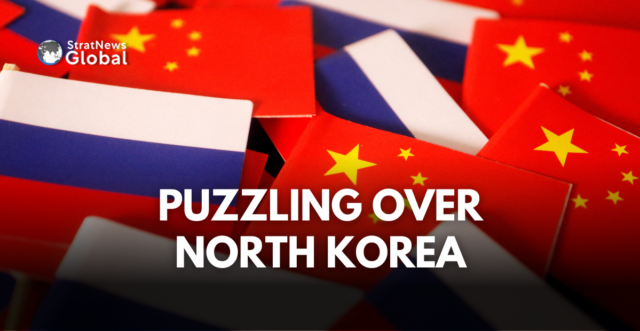Russian Deputy Foreign Minister Andrei Rudenko met with Chinese Foreign Minister Wang Yi in Beijing on Wednesday, according to Russia’s RIA news agency. The purpose of the meeting has not been disclosed, but it comes at a time of escalating concerns over potential North Korean involvement in Russia’s war in Ukraine.
Key Diplomatic Meeting Amid Heightened Conflict Concerns
The 62-year-old diplomat Rudenko, fluent in both English and Chinese, has been instrumental in developing Russia’s foreign policy, particularly with countries like North Korea. His visit to Beijing raises questions, especially as NATO and South Korea express concern that North Korean troops may soon support Russian forces in Ukraine. The meeting with China’s Foreign Minister Wang Yi took place against this tense backdrop, though specific discussion topics remain undisclosed.
Rudenko’s Role in Russia’s Ukraine Policy and North Korean Relations
Rudenko has been closely involved in Russia’s relations with North Korea since the onset of Russia’s full-scale invasion of Ukraine in February 2022. He was also a member of the Russian delegation in early peace talks with Ukraine, attempting diplomatic negotiations soon after the conflict began. His experience with North Korea is relevant now, as the potential for military support from Pyongyang could further alter the dynamics of the Ukraine conflict, raising regional and global security concerns.
Rudenko’s Stance on Post-Soviet Geopolitical Priorities
Two months before the invasion of Ukraine, Rudenko publicly reaffirmed Russia’s commitment to former Soviet states as core priorities in its geopolitical strategy. Speaking in December 2021, he stated, “Countries of the post-Soviet space will always be among Russia’s geopolitical priorities.” Rudenko cited the shared history of these nations, asserting their lasting significance to Moscow despite evolving geopolitical contexts.
As diplomatic efforts continue and Russia strengthens alliances, Rudenko’s meeting with Wang Yi signals further cooperation between Moscow and Beijing, with potential implications for both the Ukraine war and regional stability.
(with inputs from reuters)
Research Associate at StratNewsGlobal, A keen observer of #China and Foreign Affairs. Writer, Weibo Trends, Analyst.
Twitter: @resham_sng





